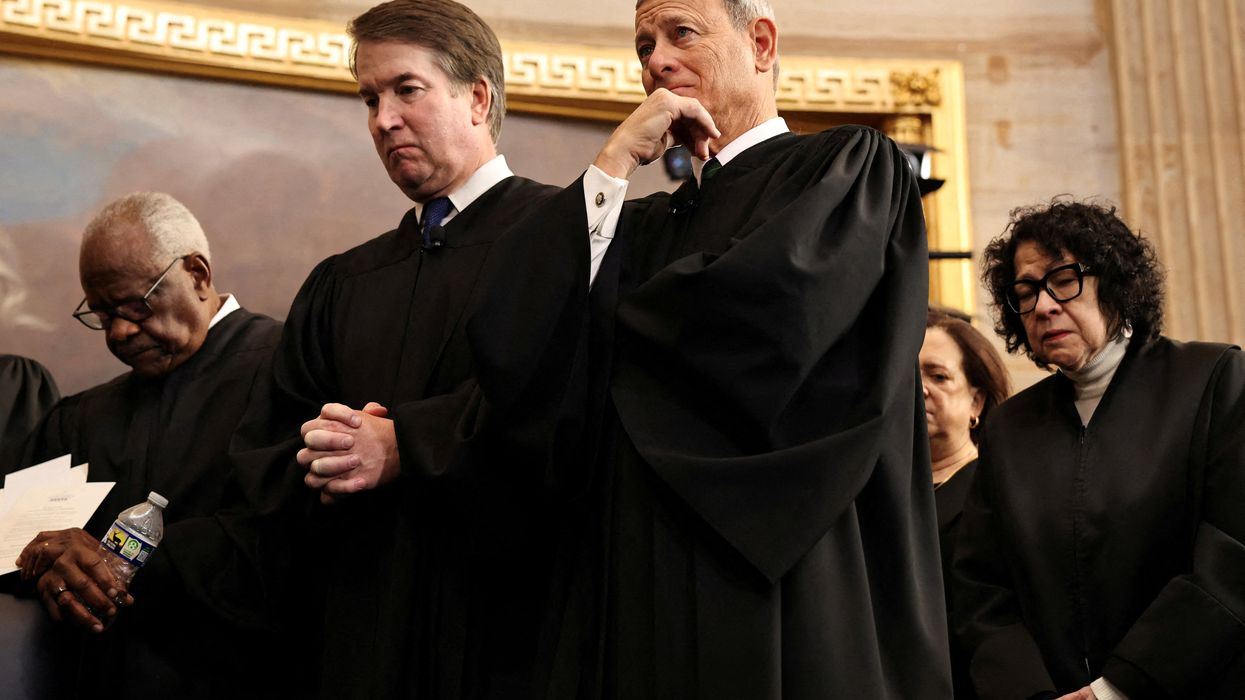Legal analyst James Zirin tells Washington Monthly that the increasingly unmoored U.S. Supreme Court is floating out to sea, particularly with its split decision on the National Institutes of Health (NIH) case.
Through an executive order, President Donald Trump declared NIH grants can no longer fund scientific research related to diversity, equity, and inclusion (DEI), including gender identity, COVID-19 studies or grants related to race. The Supreme Court issued an interim shadow docket decision regarding Trump’s cancellation of $783 million NIH.
“The short, unsigned order … was all over the place,” said Zirin. “Eight justices, except Amy Coney Barrett, dissented from part of the ruling. The 5-4 split decision had no majority opinion and just a single, sparse paragraph.”
READ MORE: Economist Paul Krugman says Trump 'telling the truth' on this issue — but there's a catch
Zirin reports four Republican-nominated justices (Clarence Thomas, Samuel Alito, Neil Gorsuch, and Brett Kavanaugh) voted to reverse an order for the government to pay the funds. But four other justices (John Roberts, Elena Kagan, Sonia Sotomayor, and Ketanji Brown Jackson) voted to affirm the lower court’s decision. Meanwhile, Barrett stayed the repayment but left the guidance vacated.
The court’s unsteady decision somehow blocks grant funding while agreeing with the mechanics that allow it to proceed.
“Curiously, Chief Justice John Roberts, who has evinced an outsized deference to the president, went wobbly,” Zirin said. “Joining the liberals’ dissent, he noted the government had conceded that the district court’s two remedies are ‘inseparable.’ Roberts concluded that, in such circumstances, the district court was not ‘required . . . to split [the Siamese twins] into two parts.’”
This means the administration can, for now, withhold NIH funding for research it deems “woke,” even though litigation over NIH grant payments will likely proceed in the Court of Claims.
READ MORE: Trump just accidentally revealed a dirty secret — and it has America's CEOs panicking
“The Court’s illogic boggles the mind,” said Zirin. “How can they plausibly hold that … the government’s conduct is probably illegal, and then allow the illegality to continue indefinitely while they consider the matter?”
Justice Ketanji Brown Jackson described the NIH decision as the “newest entry in the Court’s quest to make way for the Executive Branch” and one that “has real consequences, for the law and for the public.”
Zirin, a former federal prosecutor in New York’s Southern District, said with casinos, “the House always has an advantage, and it doesn’t need to explain why. On the Supreme Court shadow docket, it’s not entirely different — heads, Trump wins; tails, the people lose. And there’s no need to explain why.”
Read the full Washington Monthly report at this link.


